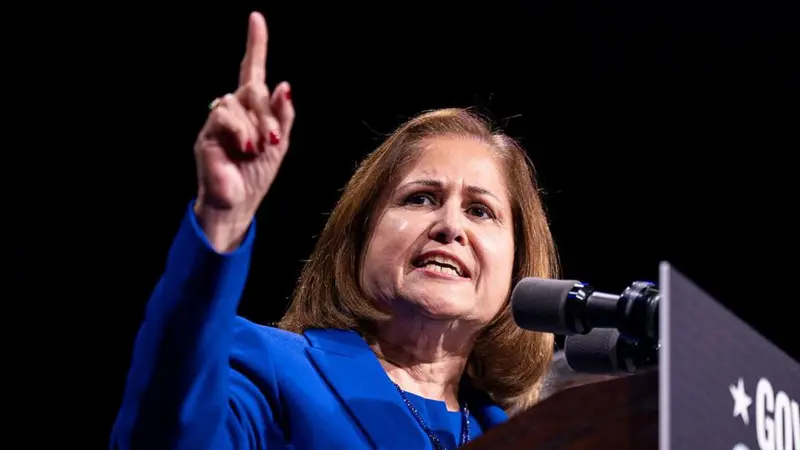Ghazala Hashmi Makes History as First Muslim Woman Elected Lieutenant Governor of Virginia

Ghazala Hashmi, a Democratic politician, has made history by becoming the first Muslim woman elected as Lieutenant Governor of Virginia, marking a milestone for representation in American politics. Her victory comes shortly after Zohran Mamdani’s high-profile win in New York City, highlighting a significant moment for Muslim Americans in public office.
Hashmi, a member of the Democratic Party, defeated Republican candidate John Reid, a former debate show host, in a statewide election.
During her victory speech, she emphasized opportunity and civic engagement, saying, “We have won the opportunities that exist in this country.”
Born in Hyderabad, India, in 1964, Hashmi immigrated to the United States at age four with her mother and sibling.
The family settled in Georgia, where her father worked as a professor at Georgia Southern University. Hashmi grew up during the era of school segregation and graduated from high school with honors before attending Georgia Southern University and Emory University in Atlanta.
Hashmi spent nearly three decades as a professor of literature and governance at Virginia universities, before being inspired to enter politics in 2019, following former President Donald Trump’s travel ban on several Muslim-majority countries.
She described the political climate as challenging for Muslim Americans, saying that the experience made her determined to gain a platform to address discrimination and advocate for equality.
Her initial political breakthrough came in 2019 when she ran for the Virginia State Senate, winning and becoming the first Muslim woman to serve in that body.
Her 2025 victory as Lieutenant Governor came after campaigning on education reform, expanded healthcare access, and protecting reproductive rights.
The Lieutenant Governor of Virginia serves as the presiding officer of the State Senate, though they do not vote unless there is a tie. In addition, the Lieutenant Governor assumes the role of Governor in the event of death, resignation, or incapacitation, and serves as acting governor during the governor’s extended absences of more than 20 days.
Hashmi attributed her political engagement to a desire to respond to societal challenges rather than remain passive. “I wanted to respond, not just sit back and watch the other side being blamed,” she told supporters during her victory speech.
Her election represents both a personal achievement and a historic moment for representation of Muslim women in U.S. state-level leadership.
